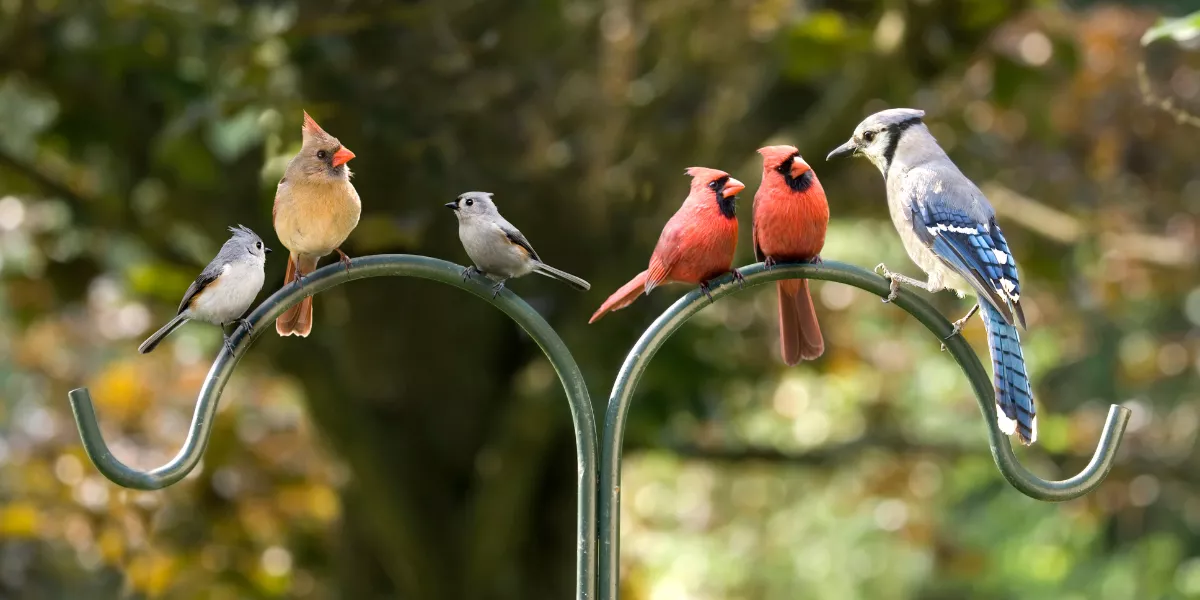
Keep your feathered friend entertained and content by providing a range of stimulating toys, like foraging and chew toys, along with opportunities for exploration and exercise. Engage in interactive play sessions, spend quality time together, and establish a routine for social interactions to strengthen your bond. Maintain a healthy diet, encourage exercise with toys like swings, and prioritize supervised playtime outside the cage. By following these tips, you can ensure your bird stays happy and stress-free.
Enriching Environment
To prevent bird boredom and stress, enrich your bird's environment with stimulating toys and activities. Birds are highly intelligent creatures that need mental and physical stimulation to thrive. Begin by providing a variety of toys that cater to your bird's natural instincts. Foraging toys, puzzle feeders, and chew toys are excellent choices to keep your bird engaged and entertained.
In addition to toys, consider incorporating natural elements into your bird's environment. Branches for perching, fresh branches with leaves for nibbling, and safe plants can mimic a bird's natural habitat, providing both mental and physical stimulation. Rotating these natural elements regularly can keep things interesting for your feathered friend.
Furthermore, create opportunities for your bird to explore and exercise. Offer bird-safe swings, ladders, or ropes for climbing and encourage flight with open spaces for short flights within the home. Regular out-of-cage time is essential for your bird's well-being, allowing them to stretch their wings and explore new surroundings.
Interactive Toys and Games
Enhance your bird's mental stimulation and physical activity through engaging interactive toys and games. Interactive toys can provide entertainment and cognitive challenges for your feathered friend. Consider puzzle feeders that require your bird to problem-solve to access treats, or toys that encourage foraging behavior to keep them engaged and active.
Rotate your bird's toys regularly to prevent boredom. Introducing new toys every so often can pique your bird's curiosity and prevent them from losing interest in their environment. Toys with different textures, colors, and functionalities can offer a variety of sensory experiences for your bird, keeping them mentally stimulated.
Engage in interactive play sessions with your bird to strengthen your bond and provide them with social interaction. Use toys like ropes, swings, or balls to play games with your bird, encouraging physical activity and mental engagement. Spending quality time together through interactive play can help alleviate stress and boredom, promoting your bird's overall well-being.
Regular Social Interaction
Regular social interaction is essential for maintaining your bird's mental and emotional well-being. Birds are social creatures that thrive on companionship, whether it's with their fellow avian friends or with you, their human companion. Spending quality time with your bird on a regular basis helps prevent boredom and loneliness, reducing the risks of stress-related behaviors.
Engaging in social interactions can include talking to your bird, playing games together, or simply spending time in the same room. Your bird will appreciate the attention and stimulation, strengthening the bond between you and enhancing their overall well-being.
Consider setting aside specific times each day for social interaction to establish a routine that your bird can look forward to. This consistency provides a sense of security and predictability for your feathered friend, promoting a sense of stability and comfort.
Healthy Diet and Exercise
Maintaining a healthy diet and incorporating regular exercise are crucial components in ensuring your bird's overall well-being. A balanced diet rich in nutrients like fruits, vegetables, seeds, and pellets is essential for your bird's health. Ensure fresh water is always available, and consider rotating different foods to provide variety and prevent boredom.
Exercise is equally important for your bird's physical and mental health. Encourage movement by providing toys that promote activity, such as swings, ladders, or puzzles. Allow for supervised playtime outside the cage to stretch their wings and explore new environments. Flying is a natural form of exercise for birds, so providing enough space for them to fly within the home is beneficial.
Incorporating both a healthy diet and regular exercise into your bird's routine won't only keep them physically fit but also mentally stimulated. Paying attention to these aspects of their care will help prevent boredom and stress, leading to a happier and healthier feathered friend.
Conclusion
Make sure to provide your bird with a stimulating environment, interactive toys, social interaction, and a healthy diet to prevent boredom and stress.
By incorporating these elements into your bird's daily routine, you can help keep them happy and content.
Remember, a happy bird is a healthy bird!




